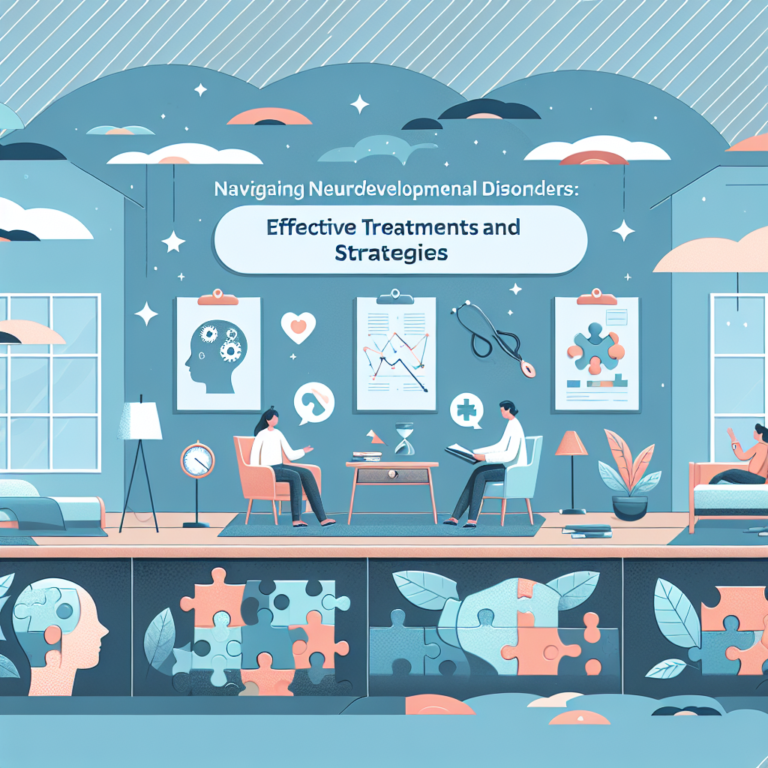The Sleep Deficit: Understanding Its Impact on Mental Health
Introduction
Imagine waking up every morning, feeling as if you’ve just run a marathon while you slept. This isn’t just fatigue; it’s the nagging consequence of a deep-rooted issue known as sleep deficit. In our fast-paced world, sleep often takes a back seat to work, social obligations, and screen time, leading to a startling reality: a mental health crisis exacerbated by a lack of quality rest. This article delves into The Sleep Deficit: Understanding Its Impact on Mental Health, revealing not only the implications of insufficient sleep but also ways to reclaim a healthy rest pattern to enhance our mental well-being.
The Importance of Sleep: More Than Just Rest
Sleep is not merely the absence of wakefulness; it’s a fundamental pillar of our mental health. During sleep, our brain performs essential functions, including memory consolidation, emotional regulation, and toxin removal. When we delve into the effects of sleep deficit, we begin to unravel a complex tapestry of cognitive and emotional disruptions.
The Mechanics of Sleep
To grasp the impact of sleep deficit, we must understand the various sleep stages. A typical sleep cycle consists of rapid eye movement (REM) and non-REM sleep, both crucial for restoring mental health. During REM sleep, our brains engage in processing thoughts and emotions—a key reason why lack of sleep can lead to heightened anxiety and depression.
Sleep Cycle Breakdown
| Sleep Stage | Duration (Minutes) | Function |
|---|---|---|
| Stage 1 | 5-10 | Light sleep, transition to deeper sleep |
| Stage 2 | 20-30 | Deeper relaxation, body temperature drops |
| Stage 3 | 20-40 | Deep sleep, vital for physical recovery |
| REM | 20-30 | Dreaming, crucial for memory and emotion |
The Direct Link Between Sleep and Mental Health
Anxiety and Sleep Deficit
Individuals struggling with anxiety often experience sleep disturbances. Research indicates that people with generalized anxiety disorder (GAD) report a higher prevalence of insomnia. This cycle perpetuates itself; anxiety leads to poor sleep, which in turn exacerbates anxiety. A case study on a 28-year-old woman with GAD demonstrated significant improvement in her mental health after a structured sleep hygiene intervention.
Depression: The Sleep-Depression Syndrome
The relationship between sleep deficit and depression is well-documented. According to the National Sleep Foundation, about 90% of individuals diagnosed with depression experience sleep disturbances. This creates a vicious circle where depressed individuals not only have difficulty sleeping but also find their mood worsens due to sleep deprivation.
Case Study Analysis: A noteworthy case involved a 35-year-old male suffering from major depressive disorder. After engaging in Cognitive Behavioral Therapy for Insomnia (CBT-I) alongside antidepressants, his sleep improved markedly, positively impacting his overall mood.
Stress and Sleep Deprivation
As our lives become increasingly stressful, the detrimental effects of sleep deficit grow. Chronic stress triggers the release of cortisol, the stress hormone, which can disrupt sleep patterns. Continued sleep deprivation leads to heightened stress responses, creating a feedback loop detrimental to mental health.
How Sleep Deficit Affects Cognitive Function
Memory and Learning
Several studies reveal a direct correlation between sleep and cognitive function, particularly relating to memory and learning. A lack of sufficient sleep impairs our ability to retain new information and perform tasks efficiently.
Decision-Making and Impaired Judgment
When we are sleep-deprived, our ability to make sound decisions diminishes. Research published by the American Psychological Association highlights that individuals deprived of sleep tend to exhibit riskier behavior and impaired judgment.
Data Visualization:
| Cognitive Function | Sleep Deficit Impact |
|---|---|
| Memory Recall | Decreased by 40% |
| Decision Making | Increased errors by 25% |
| Reaction Time | Slowed by 30% |
Strategies for Combatting Sleep Deficit
Addressing sleep deficit requires a multifaceted approach, prioritizing both sleep hygiene and mental health practices.
Establish a Sleep Routine
Creating a consistent sleep schedule is one of the simplest yet most effective strategies. Going to bed and waking up at the same time daily can help synchronize your body’s internal clock, improving sleep quality.
Limit Screen Time
The blue light emitted by screens can significantly affect melatonin production, hindering sleep onset. Consider implementing a "digital sunset" by turning off devices at least an hour before bed.
Mindfulness and Relaxation Techniques
Engaging in mindfulness practices such as meditation or progressive muscle relaxation can help reduce anxiety and prepare the mind for restful sleep. A recent study illustrated that participants practicing mindfulness reported lower levels of anxiety and improved sleep quality.
Exercise Regularly
Incorporating physical activity into your daily routine can help reduce anxiety levels, thus improving sleep quality. Even a simple 30-minute walk can make a significant difference.
The Role of Professionals in Addressing Sleep Deficit
Medical Evaluation
For persistent sleep issues, a professional evaluation is crucial. Conditions such as sleep apnea, restless leg syndrome, or other underlying factors may require medical intervention.
Cognitive Behavioral Therapy for Insomnia (CBT-I)
CBT-I is an evidence-based intervention showing promise for individuals struggling with sleep deficits linked to mental health disorders. It targets the thoughts and behaviors that contribute to insomnia, emphasizing a lasting change in sleep patterns.
Conclusion
The correlation between The Sleep Deficit: Understanding Its Impact on Mental Health is clear. Sleep is not just a passive state; it is dynamic and essential for our mental well-being. By recognizing the signs of sleep deficit and implementing strategies to restore balance, we not only enhance our mental health but also improve our quality of life. Remember, prioritizing sleep is not a luxury; it’s a vital investment in your emotional and psychological resilience.
FAQs
1. What is sleep deficit?
Sleep deficit refers to the cumulative effect of not getting enough sleep, which can lead to negative impacts on mental and physical health.
2. How does sleep deficit affect mood?
Lack of sleep can lead to irritability, increased anxiety, and symptoms of depression, worsening overall emotional health.
3. Can exercise improve sleep quality?
Yes, regular moderate exercise can help improve sleep quality and reduce symptoms of anxiety and depression.
4. What are some sleep hygiene practices?
Good sleep hygiene includes maintaining a consistent sleep schedule, creating a calming bedtime routine, and limiting exposure to screens before bed.
5. When should I seek help for sleep issues?
Consult a healthcare professional if you consistently struggle with sleep or experience symptoms of mental health disorders.
With insights and actionable strategies, readers can recognize the essential connection between sleep and mental health, equipping themselves for a healthier future.











